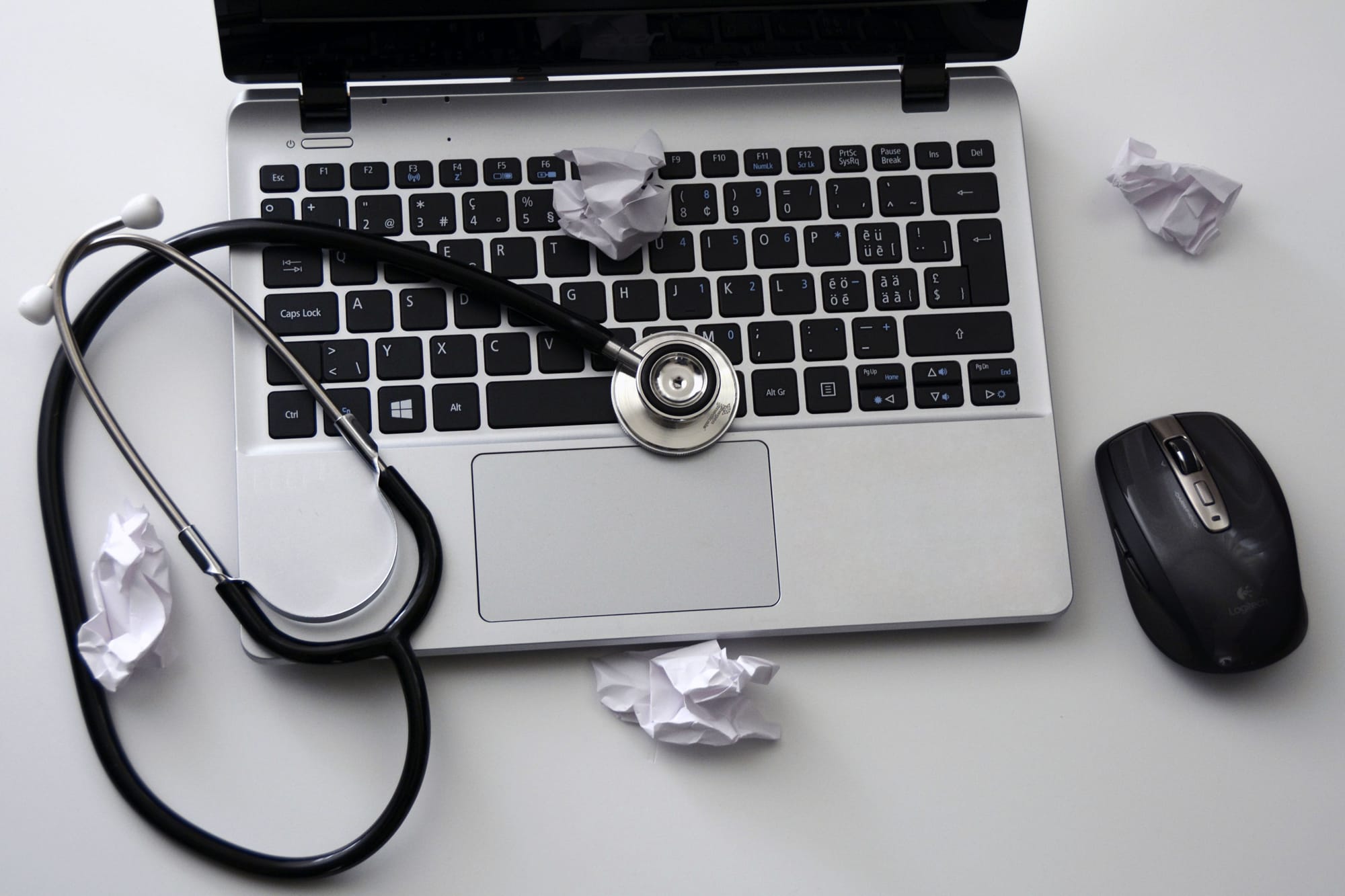
Deakin medical students reveal what it’s like to study online
Yes, you can start your medical degree online

COVID has knocked everything for a loop, especially for university students studying medicine. Should you continue studying in person? Online?
Can you even study medicine online?
Meet Hannah, who’s in her first year of studies of the Doctor of Medicine program at Deakin University. She has graciously offered to document her online studies experiences, so future MD students know what to expect!
Studying medicine online
As medical students currently living in Canada but studying at an Australian medical school, explaining the complexities of our situation to interested strangers or well-meaning family members and friends can get… confusing!
For that reason, we have put together a short list of frequently asked questions that have come up throughout our first semester of study. We have also included some of our personal impressions of what it has been like for us studying our first year of medical school online and from a distance. We have tried to be as honest as possible, including both the ups and downs of online study, in order to paint the most realistic picture of what it has been like to start medical school during the COVID-19 pandemic.
We hope that our perspectives can help to inform the realities of online study for other incoming students, as well as offer some ideas on how to answer questions from your own family and friends!
Overall, what have been your general impressions of studying online at Deakin?
H: Overall, Deakin offers a close-knit community of faculty and peers. Although I do think that the school could have done more initially to support the unique challenges faced by international students regarding their transition to online med school throughout a pandemic, overall I have appreciated the perspectives and attitudes offered by those involved.
How has the course/program content changed to accommodate online learning?
H: Throughout the first semester, all our lectures, small group sessions, workshops, tutorials, and labs have been conducted entirely online. For the most part, this means that all the content we are receiving now is exactly the same as what we would have received in person, but we are just sitting at home in Canada instead of in a lecture theatre or classroom in Australia. The only things that have been noticeably impacted are exposure to hands-on 3-D lab experiences and in-person clinical skills sessions. Although it is sometimes frustrating to be in medical school without being able to do the fun, hands-on “doctory” aspects of our training, the school is planning on running in-person intensive sessions for us to catch up on specific skills when we are finally able to travel to Australia. In the meantime, we were sent some medical equipment in the mail so that we can practice basic skills from home.
How have you found managing time zone differences?
H: I have been living in Ontario throughout my first semester at Deakin and therefore have had to deal with a 14- to 15-hour time difference. Although I was nervous about the time change at first, I found that I was able to structure my schedule in a way that I actually preferred more than traditional schedules. For example, due to the time change, most of my classes began at 6 p.m. and typically ran until 12:30 – 1 a.m. at the latest.
Although the late night classes were difficult to adapt to at first, I began to enjoy having a more traditional 9-to-5 working schedule during the day for personal study. From previous experience, I’ve always hated having to stay up late to study after a full day of class, so the flipping of my schedule worked to my advantage, as I could study in the morning while I was fresh and focused!

How has being online influenced your ability to make connections with your colleagues?
H: Throughout our first semester, domestic students had not yet returned to campus and therefore all our classes, small group sessions, workshops, and labs were run online. International students were mixed into groups with domestic students, which provided a great opportunity to meet peers and get to know people academically. However, because Australia had very reduced COVID restrictions throughout the first semester compared to Canada, domestic students would often self-organize in-person meet-ups and socials outside of class hours, which we (obviously) couldn’t attend. This was very difficult, as it was easy to feel left out from events and opportunities to make new friends. That being said, this challenge taught me the value of not being afraid to put myself out there and initiate conversations, as people are normally very friendly, welcoming, and receptive!
Have you been able to get involved in extracurriculars despite being online?
H: Definitely! Although you may have to be strategic about which positions you apply for or events you participate in due to limitations of not being physically present, it has been pretty easy to get involved. For example, I have primarily gotten involved as the Social Media Coordinator for a club at Deakin called Skill-it Kitchen. In this role, I am able to attend meetings, assist with planning of events, help run social media, etc. all from a distance. From my experience, socials are a great way to get involved despite challenges of time change and distance. Extracurricular teams are typically very accommodating of scheduling differences to ensure you are included as much as possible. Just don’t forget to advocate for yourself if you’re interested in getting involved with an extracurricular from a distance, as people won’t know how to include you properly unless you speak up!
How has your overall well-being been impacted by online/remote learning?
H: There is no denying that med school is tough, but with the added pressures of time differences, long days of screen time, and social isolation due to the ongoing lockdowns in Ontario, building the motivation to study can seem even more daunting. Personally, the initial transition to the pace of med school during a pandemic was a challenge, particularly as I adjusted my schedule to having classes at night. However, it’s so important to find balance between time for study and time for yourself. I found that taking time throughout the day to exercise, meditate, speak with a friend/loved one, make a nice meal for myself, or do anything else for fun was very important in maintaining that balance. Also, be patient! It’s okay to not be perfect at doing all of these things all the time, but setting aside a couple of hours a week to prioritize my well-being was really helpful for me in feeling productive later. When you do take breaks, try to get off your screen if you can to give your eyes and brain a well-deserved rest.
How have you found learning/adjusting to a new culture despite being online?
H: It has definitely been strange trying to learn about Australian culture while still being immersed in what you are used to at home! That being said, I am very grateful for the opportunity to learn about Australian culture from a distance, as this offers more time to reflect on and educate oneself about both the good and bad aspects of settler Australian culture, without being thrown in all at once. Personally, this has been very important, as it has given me time to begin learning about how I as an immigrant (and future doctor) can respect, serve, and uphold the values of traditional land owners and indigenous communities.
What’s the funniest or most interesting Australian quirk/colloquialism you have heard?
H: This is very difficult, because there are so many! So far my favourite general slang words are “keen,” “reckon,” “brekkie,” “yah nah/nah yah,” “old mate,” and “sweet as.” The most unusual thing to get used to from a medical perspective is small differences in pronunciation of words or spelling of terms, such as oesophagus and oedema instead of esophagus and edema.
When are you going to Australia? What are you looking forward to the most when you arrive?
H: As of writing this, we are still not certain when we will be able to travel to Australia. Changing situations with politics, vaccine status and availability, and COVID-19 lockdowns in Australia make it difficult to know when international students will be given the green light to enter the country. However, we are hoping to get there by the end of 2021, prior to the beginning of second year. I am most looking forward to in-person clinical exposure, the warm weather (comparatively to Ontario), living close to the ocean, and exploring with my partner and new friends!
What’s been the most rewarding aspect of your study so far?
H: Despite all the challenges with online learning, the most rewarding aspect so far has been enjoying finally being in medical school. If the COVID-19 pandemic has taught us anything, it’s to be grateful for what we have, and I am so incredibly privileged and appreciative for the opportunity to pursue a career that I love. Many students work very hard to get into medical school, and that hard work definitely doesn’t stop once you actually get there. However, as cheesy as it sounds, when things feel tough it’s nice to take little moments to celebrate small wins and think about how far I’ve already come. That perspective is a great driving force to get through the challenges, and I would advise incoming students to also reflect on what will inspire them to stay motivated during the hard times.
Curious to learn more about the online learning experience? Check out these articles!
- OzTREKK Ambassadors: Figuring out your study workflow
- OzTREKK Ambassadors: A letter to new students and applicants
- Do What Works For You: Our motto for learning online
- Finding balance as a medical student during a global struggle
- 4 tips to succeed in online learning
*



































Ask A Question
Ask us about your program of interest, or if you have a question about our services.
CONTACT US TODAY